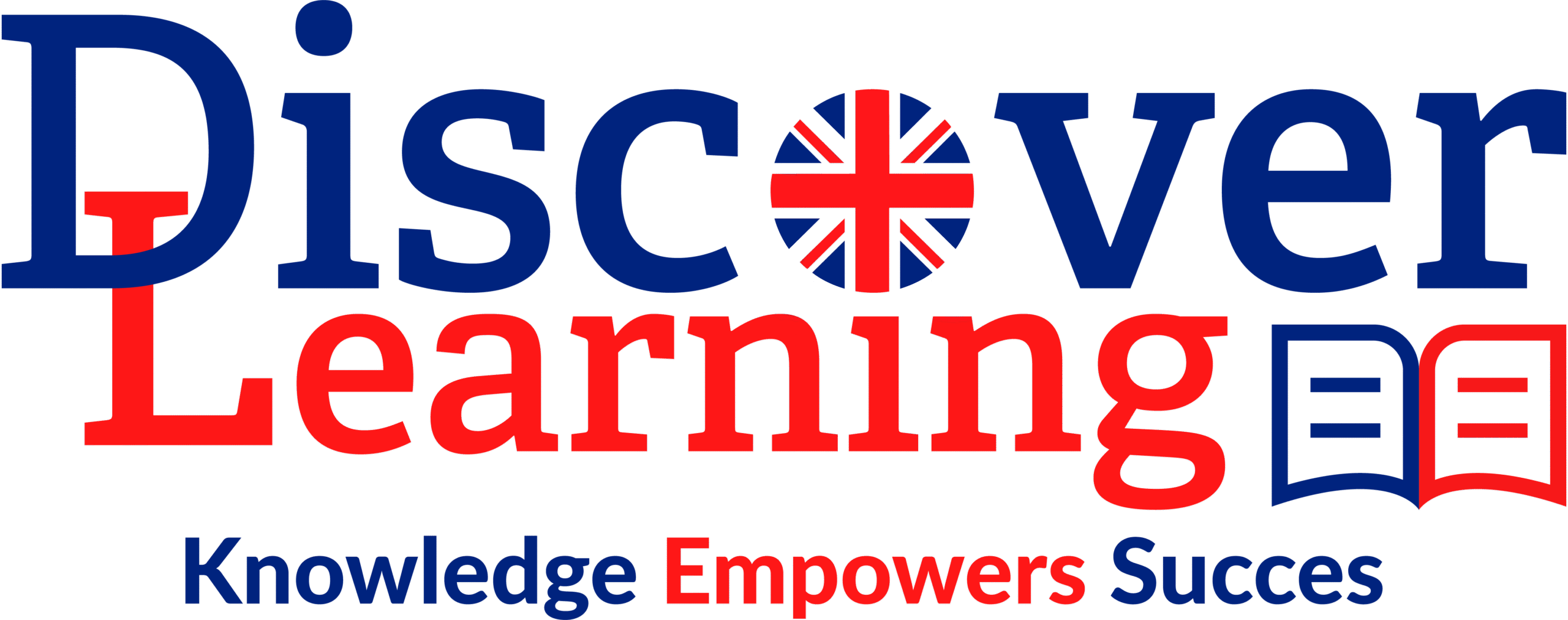
Every August, when A-level results are released, conversations about “falling standards,” “grade inflation,” and “unfair results” dominate the headlines. While these claims raise questions among parents and students, few truly understand how exam boards maintain fairness and consistency across changing curriculums. One of the most important systems behind this balance is comparable outcomes – a policy that ensures fairness in grading during periods of educational reform.
This article dives deep into how comparable outcomes work, why they exist, and how they impact students, teachers, and parents. More importantly, it explains how institutions like Discover Learning Tutors help students and families interpret A-level results accurately and prepare effectively for success. By the end, you’ll understand why comparable outcomes are not about limiting achievement but protecting academic integrity.
What Are Comparable Outcomes in Education?
The Basic Concept of Comparable Outcomes
Comparable outcomes refer to a grading approach designed to maintain consistency when syllabuses or exams undergo changes. When new qualifications or formats are introduced, it’s crucial that the results remain fair and comparable to previous years. The system ensures that no student is unfairly disadvantaged just because they took an updated version of the exam.
This system uses prior performance data, such as GCSE results, to predict expected outcomes for similar student groups. Exam boards analyze these data points to determine grade boundaries that align with previous standards. In essence, comparable outcomes safeguard fairness while maintaining credibility across years.
Why the System Matters for Fair Assessment
Without comparable outcomes, students taking reformed exams could receive lower grades despite performing at the same standard as those in earlier years. This would misrepresent their true achievement and damage confidence in the education system. Through this approach, universities and employers can trust that an A grade represents the same level of achievement year after year.
At Discover Learning Tutors, students learn not only academic content but also how grading systems like this function — empowering them with both knowledge and confidence.
The Purpose Behind Comparable Outcomes
Maintaining Academic Fairness
The core goal of comparable outcomes is to ensure that students are treated fairly during curriculum transitions. When educational systems evolve, certain topics, exam formats, or marking schemes may change. Comparable outcomes prevent these adjustments from penalizing students who are among the first to take new exams.
By maintaining a consistent national standard, this system reinforces trust among parents, teachers, and examiners. It ensures that every grade earned is a true reflection of the student’s ability, not the difficulty level of the new syllabus.
Supporting Long-Term Educational Integrity
Beyond fairness, comparable outcomes uphold the reputation of the A-level qualification. Employers and universities rely on the credibility of these results when evaluating students. The approach prevents sudden dips or surges in grade distribution that might suggest inconsistency in standards.
Institutions such as Discover Learning Tutors explain these mechanisms to families, helping them understand that stable outcomes represent reliability, not rigidity.
How the Comparable Outcomes Method Works
Data-Driven Predictions
Exam boards begin by analyzing historical data from previous cohorts, particularly GCSE performance. This helps them predict how current students are likely to perform at A-level. These predictions are used to create statistical models that define a fair range for grade boundaries.
However, data does not decide everything. It only provides guidance to prevent major unfair shifts between cohorts. This ensures that grading remains balanced and defensible.
Examiner Judgment and Quality Checks
Human judgment remains vital. After statistical forecasts are generated, senior examiners review real exam scripts to ensure standards match prior years. They compare the current performance of students with archived samples to ensure an A grade in 2025 reflects the same level as an A grade from a decade ago.
This dual process — statistical prediction and expert evaluation — keeps grading transparent and trustworthy. At Discover Learning Tutors, students gain insights into these systems, which enhances their exam confidence and strategic preparation.
Common Myths About Comparable Outcomes
Grades Are Fixed in Advance
One of the most persistent myths is that exam boards decide results before students even sit the paper. In reality, grade boundaries are not set in advance. They are determined after exams are marked, based on both data analysis and examiner review.
Comparable outcomes aim to prevent volatility, not manipulate results. This means consistent grading standards — not predetermined success rates.
It Prevents Real Progress
Critics often claim that comparable outcomes restrict genuine improvement. However, this is incorrect. If students perform better than expected, their progress is reflected in the grades. The system allows for adjustments when results show legitimate advancement.
Educators at Discover Learning Tutors emphasize this truth — that hard work, preparation, and understanding still directly influence success, no matter the grading framework.
The Role of Attainment-Referencing in A-Level Grading
How Attainment-Referencing Differs
While comparable outcomes ensure stability during transitions, attainment-referencing is the long-term method used to assess student performance. Instead of comparing one cohort to another, it focuses on how well a student’s work meets a defined standard.
This system ensures that excellence is rewarded based on achievement, not relative ranking. It’s a key principle behind why A-levels maintain their international credibility.
Ensuring Consistency Over Time
Attainment-referencing uses archived exam samples to ensure that the meaning of each grade remains constant across decades. This preserves public trust in the qualification system.
Through structured learning and mock assessments, Discover Learning Tutors helps students align their performance with these benchmarks, ensuring readiness for any exam structure.
How Comparable Outcomes Affect Teachers and Parents
Guidance for Teachers
Teachers often face questions from parents about whether exam systems are fair. Understanding comparable outcomes allows them to explain how fairness and stability coexist.
With this knowledge, teachers can focus more on teaching critical skills and less on worrying about grade fluctuations. It shifts the focus from uncertainty to preparation and pedagogy.
Reassurance for Parents
Parents can find comfort in knowing that comparable outcomes protect their child’s grades from being unfairly affected by curriculum changes. Rather than interpreting consistent results as stagnation, they can see them as proof of a balanced and transparent system.
At Discover Learning Tutors, parents are regularly informed about how these grading systems function so they can support their children’s learning effectively.
Implications for Students and Learners
Building Confidence Through Understanding
For students, understanding how grades are determined reduces anxiety. It helps them realize that success depends on preparation and mastery — not on arbitrary systems.
Through personalized coaching, Discover Learning Tutors empowers learners to focus on what they can control: consistent study, exam strategies, and resilience.
Encouraging Genuine Learning
Comparable outcomes emphasize genuine understanding over last-minute memorization. Students who engage deeply with topics perform better because their efforts align with the assessment standards.
When guided by educators from Discover Learning Tutors, learners develop both academic skill and confidence, ensuring they achieve their true potential regardless of exam reform.
Why the Media Often Misrepresents Comparable Outcomes
Simplified Headlines vs. Complex Realities
Media outlets often sensationalize exam results with headlines like “Grade Inflation Crisis” or “Falling Standards.” While such claims attract attention, they rarely explain the nuances of comparable outcomes.
These narratives create unnecessary panic among families, even though the system is designed to protect students.
Promoting Transparency Through Education
The best way to combat misinformation is through education. Schools and tutoring organizations must take the lead in explaining how grades are awarded.
That’s where Discover Learning Tutors plays a vital role — by educating both students and parents about how A-level grading truly works, replacing myths with clarity and confidence.
Conclusion
Comparable outcomes are not about fixing results or limiting progress — they’re about ensuring fairness and consistency during educational changes. They maintain confidence in the A-level system and protect students from the uncertainties of reform.
By understanding this process, parents, teachers, and students can focus on what truly matters: learning, improvement, and personal growth. With the expert guidance of Discover Learning Tutors, families can navigate exam systems with assurance and help students reach their full potential with clarity, preparation, and purpose.
FAQs
1. What are comparable outcomes in A-level grading?
Comparable outcomes are a statistical approach used to maintain fairness and consistency when exam formats or syllabuses change.
2. Do comparable outcomes mean results are fixed?
No. They ensure stability, not manipulation. Grades still reflect real performance as verified by examiners.
3. Why do we need comparable outcomes?
They protect students from being unfairly disadvantaged when new exams are introduced and preserve the credibility of qualifications.
4. Can student improvement still be recognized under comparable outcomes?
Yes. If student performance improves significantly, examiners adjust boundaries to reflect genuine progress.
5. How can Discover Learning Tutors help with A-level preparation?
Discover Learning Tutors
helps students understand grading systems, improve exam readiness, and achieve academic confidence through structured, personalized support.
Also View
- Can ChatGPT Help Your Child with Physics Homework?
- A Level Grade Inflation: What It Really Means for Students, Parents, and Teachers
- Top-rated A-level Physics Maths Tutor with Discover Learning Tutors
- How a Physics and Maths Tutor in Dubai Can Boost Exam Scores
- Top Strategies to Ace Your IGCSE Science Exam with Discover Learning Tutors
